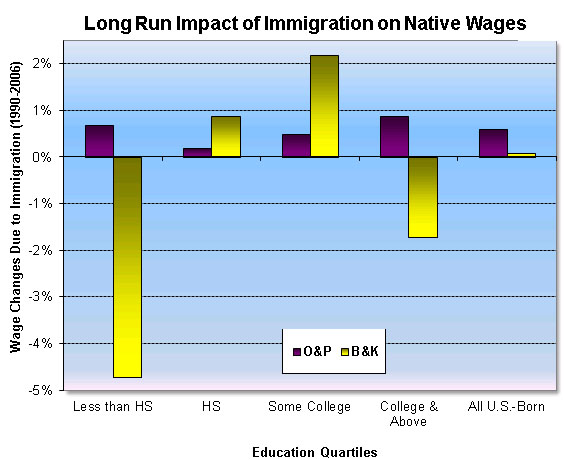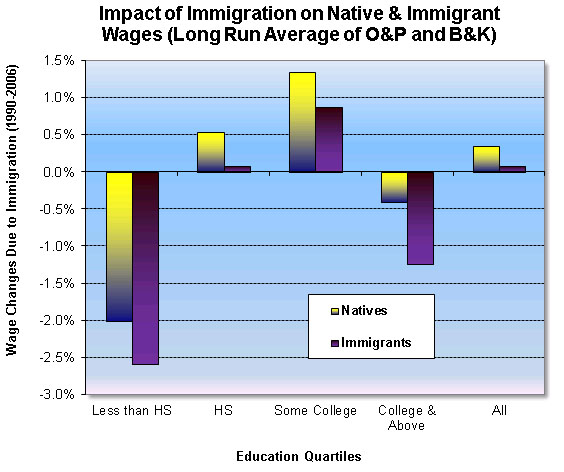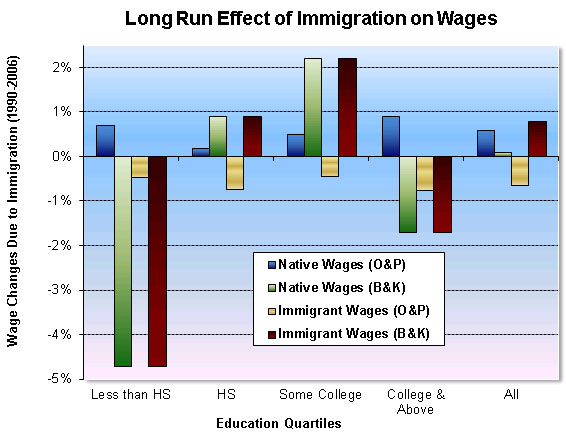In February, National Public Radio aired a segment, part of its Planet Money series, in which it asked three immigration experts what sort of immigration system they would have if they “controlled the borders.” To NPR’s credit, one of the experts was the Cato Institute’s Alex Nowrasteh (a contributor to the Open Borders site). He proposed letting all immigrants in, except for suspected terrorists, criminals, and those with serious communicable diseases. He noted that this policy would benefit the economy and would mean that people wouldn’t have to put themselves at risk crossing the border.
Not surprisingly, the other two experts chosen by NPR did not propose open borders. One expert was the economist Giovanni Peri, a professor of economics at the University of California, Davis, who has researched the economic impact of immigration on the U.S. and found it to be mostly positive. His ideal immigration system would be one in which employers would bid for permits allowing them to employ individual foreign workers, including low-skilled workers. The other expert was Dean Baker, co-director of the Center for Economic and Policy Research (we’ve critiqued Baker before). He would admit immigrants with families in the U.S. and would provide visas to highly skilled individuals who, in the words of NPR’s host, “would benefit our economy the most.” Mr. Baker said he “would like to make sure that you had a lot of immigrants at the high end” but is “less concerned about farm workers.”
The proposals from Mr. Peri and Mr. Baker seem designed to maximally benefit the U.S. and apparently make the interests of immigrants who are excluded from their systems irrelevant. Formulating such an immigration policy probably makes sense to many Americans. After all, some may think, the government should look out first and foremost for the interests of its citizens. Joseph Carens of the University of Toronto articulates this view: “The power to admit or exclude aliens is inherent in sovereignty and essential for any political community. Every state has the legal and moral right to exercise that power in pursuit of its own national interest…”
Mr. Carens suggests, however, that this nationalist position doesn’t justify immigration restrictions. He explains that “When the stakes are high (e.g., legal proceedings) we normally create institutional rules to try to prevent people from being able to favor their friends and relatives. In other words, our notion of justice constrain the extent and ways in which we think it is acceptable for us to favor family members… even if we are morally entitled to favor compatriots in some ways, it is not self evident that we are entitled to favor them by excluding potential immigrants. Perhaps that form of preferential treatment goes too far.” Restricting immigration in effect would be nepotism writ large, an attempt to favor those identified as being more closely connected to us by giving them access to the U.S. labor market and denying access to those deemed less connected.
Bryan Caplan of George Mason University (who has also guest blogged for Open Borders) echoes Mr. Carens in his critique of the analogy between the nation and a family: “…almost everyone recognizes moral strictures against familial favoritism. Almost everyone knows that ‘It would help my son’ is not a good reason to commit murder, break someone’s arm, or steal. Indeed, almost everyone knows that ‘It would help my son’ is not a good reason for even petty offenses – like judging a Tae Kwon Do tournament unfairly because your son’s a contestant.” Despite this, Mr. Caplan points out that at the national level citizens tend to lose this sense of morality and use nationalism “as an acceptable excuse for horrific crimes against outgroups.” Nationalism leads to immoral treatment, such as interfering with the right to immigrate. The logic of Mr. Carens and Mr. Caplan discredits nationalist arguments around the world supporting immigration restrictions, not just those in the American context.
Given Planet Money’s focus on economics, the underlying question posed to the three experts about their preferred immigration regime may really have been: “From a purely economic standpoint, which immigration policy do you believe would most benefit current American citizens?” (Even within these parameters, the proposals of Mr. Peri and Mr. Baker are questionable; open borders, as Mr. Nowrasteh suggests, may have the most beneficial economic impact on the U.S.) Actual policymaking, however, should not exclude moral concerns. NPR should air another segment asking guests, “What would be a moral immigration policy?” That would help Americans think more profoundly about immigration policy.



